COVID-19 Rapid Response Fund
Ipas is working to ensure that abortion remains an essential health service during the COVID-19 pandemic.
The pandemic is creating many barriers to abortion care—and some politicians are shamefully using it as a reason to deny reproductive rights.
You can help us guarantee that women still have the power to make their own reproductive health choices during this extremely challenging time. Our COVID-19 Rapid Response Fund supports innovative, fast-moving work that our teams are rolling out as we learn more about the pandemic’s impact on abortion care and how we can help.
Donate to COVID-19 Rapid Response Fund
* We keep your information private. Read our privacy practices.
During the pandemic, Ipas is working to:
- Provide women with the information they need to safely self-manage an abortion with pills
- Ensure governments identify abortion as an essential health service
- Give abortion providers the information, training and supplies they need—including personal protective equipment—to safely offer abortion and contraceptive care

Learn about Ipas’s full COVID-19 response in countries where we work across Africa, Asia and Latin America
Helping health workers prevent infection
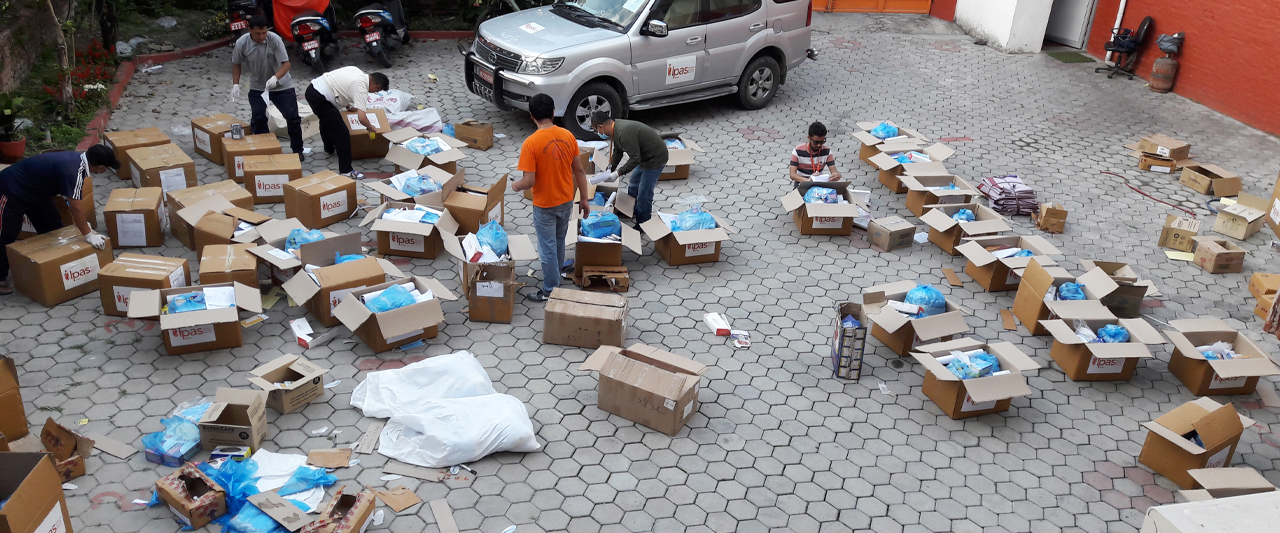
© IPAS NEPAL
The Ipas Nepal team preparing boxes of personal protective equipment to dispatch to health centers they support (above). The team delivered thousands of masks and gloves, plus eye protection, hand sanitizer, soap and other supplies to more than 300 health institutions, including in Duhabi (yellow building) and Biratnagar (green building).
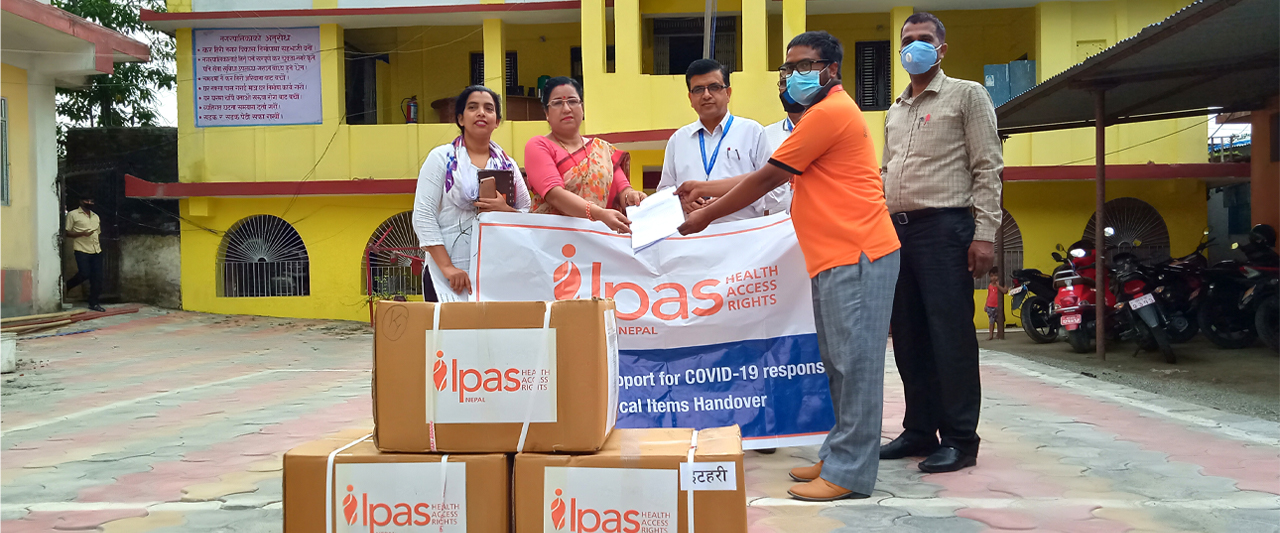
© IPAS NEPAL
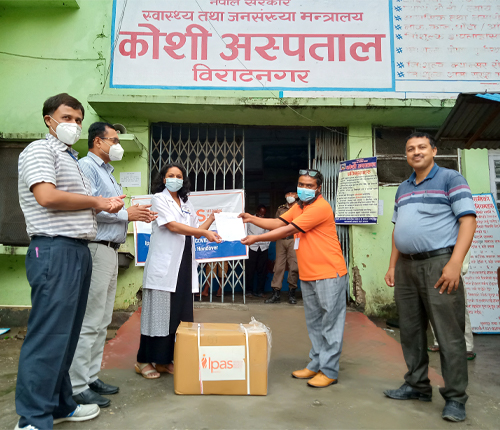
© IPAS NEPAL
Ipas is working to give health providers the information, training and supplies they need—including personal protective equipment (PPE)—so they can safely offer abortion and contraceptive care during the pandemic. In Nepal, Ipas supports the government’s COVID-19 response by distributing PPE to health centers and hospitals—and directly to Female Community Health Volunteers who connect women with health information and referrals.
Ipas Nepal has focused on PPE deliveries to extremely remote and isolated districts where health workers face a particularly acute need for protective equipment. At Mangalbare Primary Health Care Center in Nepal’s Ilam District, for example, health providers felt unsafe giving women contraceptive implants because they lacked PPE, and so they had started only offering condoms and contraceptive pills. One provider told the Ipas Nepal team she had young children at home and simply couldn’t risk infection. After Ipas delivered boxes of PPE to the facility, this same provider reported she felt happier and safer—and the center had restarted implant services and already provided four women with implants within just two days.

COURTESY OF JOYPURHAT DISTRICT HOSPITAL
At the Joypurhat District Hospital in Bangladesh, Ipas remotely managed the placement of handwashing basins in public areas for patients and visitors to use before entering and exiting.
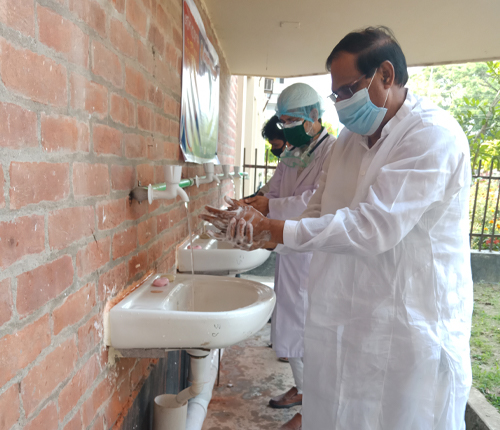
COURTESY OF JOYPURHAT DISTRICT HOSPITAL
The hospital superintendent (left) and local parliament member (right) inaugurated the new handwashing basins, intended to help prevent the spread of COVID-19.
ENSURING WOMEN HAVE ACCURATE INFORMATION IN BOLIVIA
Abortion is legally restricted in Bolivia, and many women seek to end unwanted pregnancies themselves using abortion pills. Recognizing the possible harm women and girls will face if they don’t have accurate information, Ipas Bolivia has been training volunteer “community agents” who provide women with the information they need to make safe decisions about their sexual and reproductive health. During the COVID-19 pandemic, the number of people seeking this information has only increased.
“A woman who decides to end a pregnancy will do it, without regard to any restrictions, quarantine or not,” one community agent says. Agents report they can continue providing information easily via WhatsApp and other online channels during the crisis—thereby reducing the harms women may face.
“We’re using every channel and avenue we have to share information about safe abortion, contraception and reproductive rights,”
MALENA MORALES, Ipas Bolivia Director
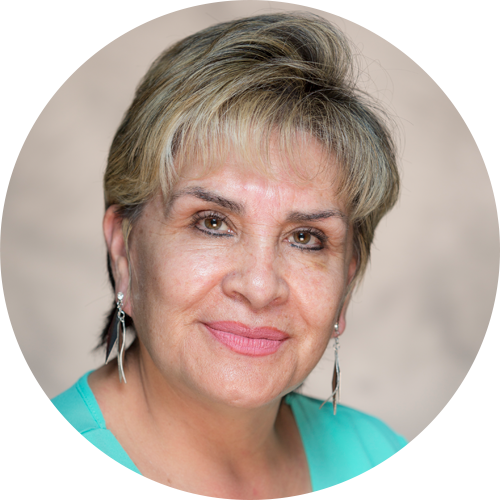
KEEPING CLINICS OPEN FOR REFUGEES IN BANGLADESH
In Bangladesh, Ipas supports 28 health-care facilities for Rohingya refugees in the Cox’s Bazaar district, one of the world’s largest refugee camps. For the 900,000 refugees living in the camps, these facilities provide access to safe abortion—known as “menstrual regulation” in Bangladesh—and contraception.
When the pandemic started, menstrual regulation was initially not designated as “critical” care, causing suspended services and barring reproductive health-care providers from traveling to the camps. But after weeks of advocacy by Ipas, all clinics are once again in operation. Reproductive health-care workers in the facilities have been recognized as critical providers and have been issued vehicle passes so they can continue to provide services to Rohingya women and girls.
We are pleased that the government has recognized that reproductive health services are critical to the health and well-being of women.”
DR. SAYED RUBAYET, Ipas Bangladesh Director

Why support Ipas during the COVID-19 pandemic?
Ipas is the only international organization solely focused on expanding access to safe abortion and contraceptive care. Across Africa, Asia and Latin America, we work with partners to train abortion providers, to connect women with vital information so they can access services, and to advocate for safe, legal abortion. We have almost 50 years of experience partnering with health systems, community-based groups and abortion rights advocates to expand and improve abortion care—including in crisis settings like the Rohingya refugee crisis in Bangladesh.
Keeping women’s health essential despite COVID-19 shortages
Ipas staff and partners around the world are working furiously to protect access to contraception and abortion during the pandemic. Ipas President and CEO Anu Kumar shares examples of the innovative solutions that are emerging in this opinion piece published by CNN.



